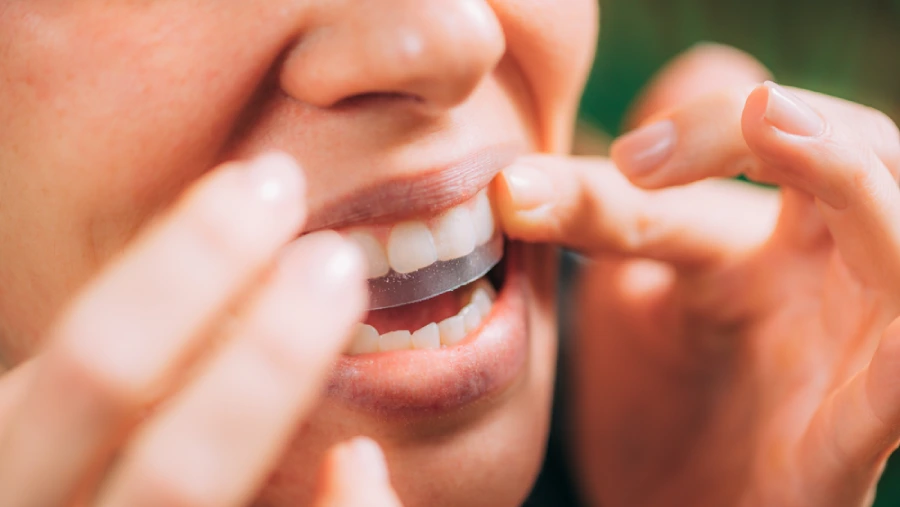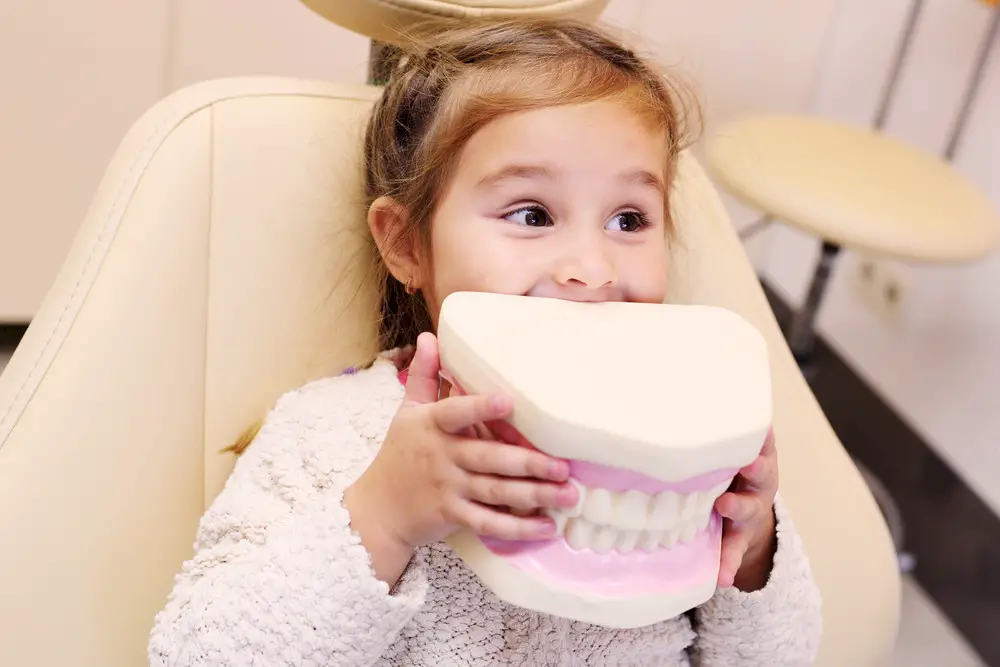
- Tooth enamel is strong but can’t regenerate once lost—only strengthened.
- Acidic foods and drinks like citrus, soda, coffee, and vinegar-based sauces wear enamel down. This is called erosion.
- Sticky and starchy snacks promote acid-producing bacteria that erode enamel.
- Habits like brushing too hard, grinding teeth, mouth breathing, and overusing whitening strips can cause damage.
- Signs of enamel loss include sensitivity, yellowing, rough edges, and frequent cavities.
- Enamel can be protected with fluoride, calcium-rich foods, good hydration, and enamel-safe oral care.
Not all superheroes wear capes, but many do carry a shield. Enamel is kind of like a superhero shield for your teeth! Ranking at 5 on the Mohs scale, tooth enamel is ranked in-between steel and titanium for hardness.
But enamel is not indestructible. What causes enamel loss, exactly? There are a ton of foods and habits – some of which you probably know are bad and others which you might not even think twice about – that could be quietly destroying your enamel.
In this blog post, we list 9 expected and surprising foods as well as 6 daily habits that contribute to tooth enamel loss. We also share how to protect and strengthen your smile with several super tips, as well as answer some common questions about enamel that people often have, like whether it can be rebuilt.
What is Tooth Enamel – and Why Does it Matter?
Tooth enamel is the hard and mineral-rich layer that covers your teeth and gives them their white appearance. It’s also what protects the rest of the teeth from cavities, sensitivity, and tooth decay.
It’s composed of a compound called hydroxyapatite, a calcium phosphate crystal that helps protect against wear, decay, and bacteria.
People often wonder: “Can tooth enamel grow back?” The unfortunate truth is that once enamel is gone, it isn’t able to grow back. The good news is that you can remineralize and strengthen the enamel that you do have left.
But before we get to how to help remineralize enamel, let’s uncover what might be causing it to erode in the first place.
9 Foods That Can Often Cause Tooth Enamel Loss
Hard as enamel may be, it can get eaten at slowly over time by these common culprits:
- Citrus Fruits & Juices: From limes and lemons to grapefruits and oranges, all citrus fruits are high in acid, which softens enamel and makes it easier for it to get damaged.
- Soda: The acid and sugar in soda pose a double threat to enamel, but even diet soda often has enough acid to cause erosion.
- Black Coffee: Does black coffee erode tooth enamel? It absolutely does. (Sorry Java lovers!) It’s acidic and also dries out the mouth, reducing the protective supply of saliva.
- Sports & Energy Drinks: These have a ton of sugar and acid, just like soda, and are often a primary cause of tooth enamel loss and tooth decay in kids.
- Dried Fruit & Candy: Sticky snacks with sugar that cling to teeth feed bacteria that create enamel-eroding acids.
- Starchy Snacks (i.e., Chips): These convert to sugars and also often get stuck in the teeth, increasing acid production like dried fruit and candy.
- Sour Candies: Many of these are nearly as acidic as battery acid!
- Alcohol: This causes dehydration and reduces saliva flow, which leads to dry mouth and higher cavity risk.
- Vinegar-Based Foods: From pickles to salad dressings, hot sauces, and barbecue sauces, highly acidic vinegar-based foods often contribute to enamel loss.
6 Daily Habits That Harm Enamel
Yes, those OTC whitening strips damage tooth enamel. In fact, all of the following 6 habits could be slowly eating away at your enamel and harming your oral health:
- Brushing Too Hard
- Grinding Your Teeth
- Breathing through Your Mouth (Especially at Night)
- Overusing Whitening Strips
- Frequently Snacking & Sipping (Especially Acidic or Sugary Substances)
- Skipping Dental Visits
How to Know if Your Enamel is Damaged
If you experience any of the following regularly, then there’s a good chance that your tooth enamel is damaged or eroding:
- Sensitivity to hot, cold, or sweet foods
- Yellowing or dull teeth
- Chips, pits, or rough edges
- More frequent cavities
How to Promote Healthy Enamel & Remineralize Teeth
We know now that enamel can’t regenerate or “grow back”. But can existing tooth enamel be restored (strengthened)? Yes! This is called remineralization. Here’s what to do to help not only retain but also remineralize your existing enamel:
- Using remineralizing agents such as fluoride and nano-hydroxyapatite.
- Eating foods rich in calcium, like green leafy vegetables, almonds, and dairy products.
- Staying hydrated and drinking water often, especially after eating trigger foods, to rinse acid and sugar off teeth.
- Chewing sugar-free gum to help stimulate saliva (as long as you don’t have braces).
- Waiting 30-60 minutes to brush your teeth after consuming acidic foods.
- Using enamel-safe oral care products.
How Do Dentists Fix Severe Enamel Erosion?
If you’ve come here looking for information on how to rebuild tooth enamel, as you now know, that’s not possible. That being said, when enamel erosion is severe enough, dentists often are able to provide treatments like fluoride varnishes, dental bonding, veneers or crowns, or night guards for bruxism (teeth grinding).
Protect Your Smile with The Super Dentists
While tooth enamel loss is serious business, it’s usually preventable! By eating the right things, avoiding the wrong ones or consuming them in moderation, and avoiding certain habits, you can preserve and even strengthen your enamel.
Worried about tooth enamel loss in you or your children? Schedule an appointment with The Super Dentists now!











